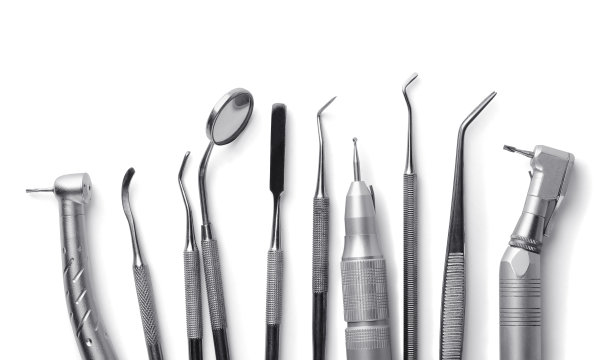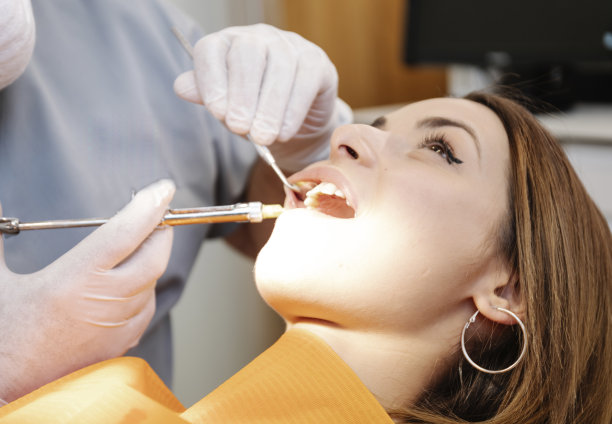Summary: Periodontal disease is a serious oral health condition that extends far beyond the confines of the mouth, impacting overall health significantly. Individuals suffering from periodontal disease can experience a range of systemic health issues, including cardiovascular disease, diabetes, and respiratory infections. This article discusses the multifaceted connections between periodontal disease and overall health, as well as effective strategies for prevention and management. The importance of regular dental visits, effective home care practices, and nutritional counseling will be highlighted. Through understanding these dimensions, individuals can take control of their oral and overall health, leading to improved well-being and quality of life.
1. Connection Between Periodontal Disease and Systemic Health

Research has established a strong link between periodontal disease and various systemic health conditions. One notable example is cardiovascular disease. The bacteria associated with periodontal infections are believed to enter the bloodstream, potentially leading to arterial inflammation and plaque buildup. This inflammatory response can increase the risk of heart attacks and strokes, making it critical to recognize the oral-systemic health connection.
Another significant association exists between periodontal disease and diabetes. Individuals with diabetes are more susceptible to infections, including periodontal diseases, which can, in turn, complicate diabetes management. Elevated blood sugar levels can promote bacterial growth in the mouth, exacerbating periodontal conditions. Understanding this connection is vital for effective disease management and control in diabetic patients.
Additionally, periodontal disease has been linked to respiratory conditions. Inhalation of periodontal bacteria can lead to respiratory infections and exacerbate existing conditions such as chronic obstructive pulmonary disease (COPD). Thus, managing periodontal health is important not only for oral hygiene but also for overall respiratory health.
2. Prevention Strategies for Periodontal Disease
Prevention of periodontal disease largely hinges on effective oral hygiene practices. Brushing twice a day with fluoride toothpaste and flossing daily are essential steps in combating plaque buildup. Using therapeutic mouthwashes can also help reduce oral bacteria and support gum health. Adopting a consistent oral hygiene routine can significantly decrease the risk of periodontal issues.
Regular dental check-ups play a crucial role in preventing periodontal disease. During these visits, dental professionals can perform thorough cleanings and identify early signs of gum disease, allowing for timely intervention. It is recommended to visit a dentist at least twice a year to maintain optimal oral health.
Further, maintaining a healthy diet rich in vitamins and minerals supports gum health. Foods high in antioxidants, such as fruits and vegetables, can reduce inflammation and promote healing. Limiting sugary snacks and beverages can also help decrease the risk of plaque formation, creating a comprehensive approach to periodontal disease prevention.
3. Management of Existing Periodontal Disease
For individuals already suffering from periodontal disease, management requires an integrated approach. Treatment can range from non-surgical options, like scaling and root planing, to more invasive procedures, depending on the severity of the condition. These interventions help remove tartar and bacteria from below the gum line, allowing for healing and regeneration of the gum tissue.
Bone grafting procedures may be necessary for advanced periodontal disease, as they can facilitate the regeneration of lost bone around the teeth. This can improve the stability of teeth and enhance overall oral function. Consulting with a periodontal specialist can provide patients with tailored treatment plans that cater to their individual needs.
In addition to professional treatment, patients should continue to prioritize their oral hygiene routines at home. Using prescribed medicated mouthwash and staying vigilant about daily cleaning can significantly improve outcomes and prevent further progression of the disease. Adhering to the prescribed plan is crucial for ongoing management and maintaining oral health.
4. The Role of Lifestyle Changes in Oral Health
Lifestyle choices play a significant role in both the prevention and management of periodontal disease. Smoking, for example, is a known risk factor for developing periodontal disease and can further complicate its management. Quitting smoking can lead to improved gum health, reducing the risk of periodontal complications.
Stress management is another important factor, as stress can negatively impact oral health. Elevated stress levels can lead to habits such as teeth grinding, which can exacerbate gum disease. Engaging in relaxation techniques such as yoga or meditation can contribute to better gum health alongside general well-being.
Regular exercise also supports systemic health, which can enhance oral health outcomes. Physical activity improves blood circulation and lowers stress, both of which can factor into improved periodontal health. Encouraging a holistic approach that incorporates lifestyle changes can greatly benefit individuals dealing with periodontal disease.
Summary:
Understanding the profound impact of periodontal disease on overall health and employing effective strategies for prevention and management is essential for achieving better health outcomes. By recognizing the connections between oral health and systemic conditions, implementing preventive measures, managing existing diseases, and adopting healthier lifestyles, individuals can take proactive steps towards maintaining both their oral and overall health. This integrated approach is vital for enhancing quality of life and promoting long-term wellness.
This article is compiled by Vickong Dental and the content is for reference only.
Vickong Dental
Vickong Dental is a large medical group established in Hong Kong in 2008 by professors from well-known medical universities in Guangdong and Hong Kong, as well as medical doctors from key national '985' universities (including Master's supervisors and senior professors). The chain of branches brings together expert dentists with PhDs and Master's degrees from Hong Kong and Mainland China, committed to providing high-quality dental treatment.
"Vickong Dental Practices the University Motto of 'Healing and Serving Society,' with a Stable Operation for Sixteen Years. It Has Been honored with Hong Kong Enterprise Leaders's Choice,' and is a Global Trusted Implant Center for the Nobel Implant System. Recommended by Hong Kong Metro Broadcast and Guangdong Television, it Serves Customers from Over Thirty Countries and Regions, Gaining the Trust and Favor of Citizens from the Guangdong-Hong Kong-Macau Greater Bay Area and Surrounding Cities.

Thousands of customers' unanimous praise
The most recognized and highly recommended dental service by customers in the Guangdong-Hong Kong-Macau Greater Bay Area
We Ensure You Receive Detailed Care and Attention Here
Hong Kong standards, Shenzhen prices, Your Trusted English-speaking dentists

Vickong Dental Medical-Grade Instrument Disinfection Process
Vickong Dental Medical-Grade Instrument Disinfection Process

Vickong Dental Chain: A Warm and Comfortable Environment for Treatment






Appointment Hours

Q&A
Why choose Vickong Dental?
Vickong Dental practices the university motto 「Medicine to Benefit Society」, with each branch bringing together highly qualified dentists with doctoral and master’s degrees from Hong Kong and the Mainland, and has maintained seventeen years of steady operation。Recipient of 「2024 Hong Kong Enterprise Leaders Brand」, 「2025 Hong Kong Enterprise Leaders Brand」, a Nobel Biocare Global Trusted Implant Center, and a brand recommended by Metro Radio Hong Kong and Guangdong TV。
To date, we have served customers from more than thirty countries and regions,earning exceptionally high word-of-mouth recognition and trusted recommendations from residents across the Guangdong-Hong Kong-Macao Greater Bay Area and surrounding cities
We have eight major branches in Zhuhai、Shenzhen,and a consultation and service assurance center in Hong Kong,so you can book a free consultation at any time for any questions,which is very reassuring.
If I do not accept the quotation after the CT scan, will I be charged??
No! As long as the actual treatment has not started, you will not be charged any fees.
Will there be any additional charges during the treatment process?
No, there won’t be any additional charges. Before treatment begins, we will clearly explain the treatment plan and its corresponding fees. Only after the patient agrees and signs the consent form will we proceed with the dental service.
Can I pay in Hong Kong dollars?
Yes. Vickong Dental accepts payment in Hong Kong dollars. The amount will be converted based on the exchange rate of the day, and the applicable rate will be clearly communicated to you in advance.
Can I reschedule my appointment at any time?
Yes. Please contact us via **WeChat** or **WhatsApp** as early as possible, providing your original appointment time and details, along with your preferred new date and time slot for rescheduling.













